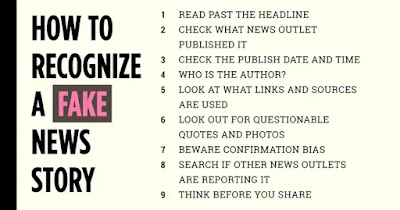 |
| Image courtesy Penguin Inc. |
One of the most interesting books I encountered when studying years ago, is Neil Postman's Teaching as a Subversive Activity.
That was in the mid-seventies when I was completing my education degree. From memory, it was a set text. Postman's book was ground-breaking in that it rejected traditional educational practice by encouraging teachers to ensure that their students questioned everything. It set out to promote the importance of teaching enquiry skills that could be applied to a world increasing in complexity and encouraging students to question many of the half-truths western culture had accepted for centuries.
This was a revolutionary concept, especially viewed from the American notion of education which was largely about filling students up with knowledge and dogma whilst at the same time expecting them to accept it all without question.
More recently, I'm observing that same unquestioning attitude to on-line information, emanating mostly from the USA, and driven by the profit motive assaulting our local media landscape. What is now called the MSM (Main Stream Media) panders to one extreme of the political spectrum or the other and makes a dollar from selling opinions that are consumed like breakfast cereal. The consumer will always pay for what he/she wants to hear, and as the song goes, will disregard the rest.
Facts no longer matter, and reporting them has become a lost art.
The outcome of this media manipulation is social division, the likes of which is tearing the USA apart. Unfortunately, it seems to be oozing across the Pacific.
This post, gentle reader, offers advice on how you can discriminate between truth and misinformation when you encounter material on-line.
First up, there are a multitude of fact checking sites out there.
Locally, we have TheConversation FactCheck, AAP FactCheck, and RMIT FactCheck. The last of these is used by the ABC, which puts it, in my book as less reliable because of its affiliation with a mainstream media organisation.
In the USA landscape you will find FactCheck.org, PolitiFact.com, Snopes.com, and PunditFact. There are others that are part of media organisations like the RMIT ABC site, such as FactChecker (Washington Post) but I have not included them in my list as they aren't independent.
The four listed are run by non-profit groups, as they refuse to accept money from mainstream media or PACs in order to maintain their independence.
Apart from using these sites, there are few fairly simple verification strategies that the average punter can use. The first one is "triangulation", whereby you search for three different reports of the same incident, and find aspects on which they agree. Generally (but not always) these points of agreement approach the truth.
Then there is a strategy I've used, especially in regard to recent reports of BLM activity, particularly in the USA. Reports from deeply aligned media (such as Fox News) have promoted the notion that rioting and disorder have become daily events in locations such as Portland. At the height of this reporting, I would check two or three of the local (generally non-aligned) news websites, and a completely different picture would emerge.
A very good example of this phenomenon is revealed when you compare the local coverage of the Arizona County Mariposa audit as it is reported in the local media with how it turns up in NewsNow.
This, from the Huffington Post, is a pretty good summary -
#Inbuilt Crap Detectors
Comments closed.




